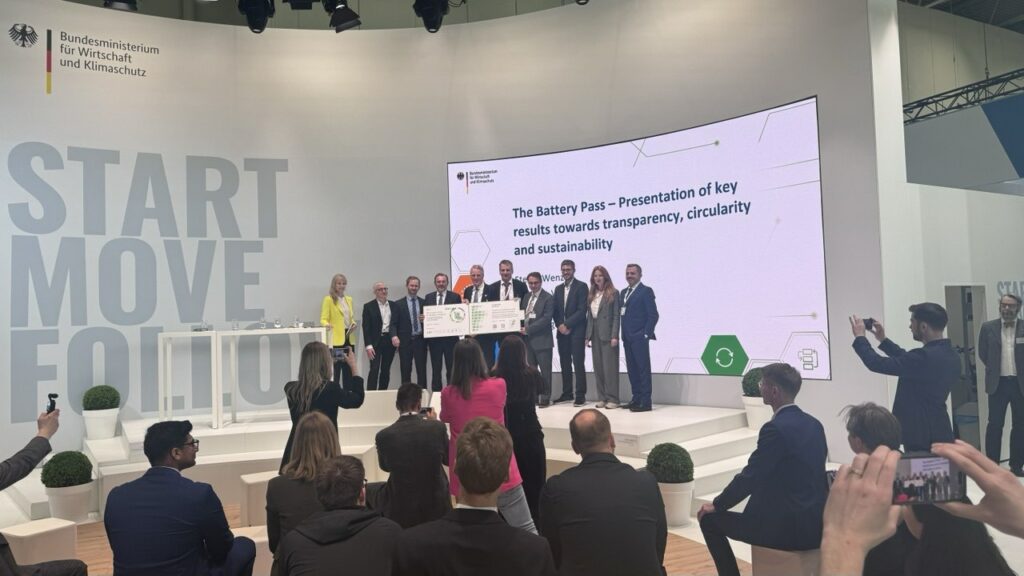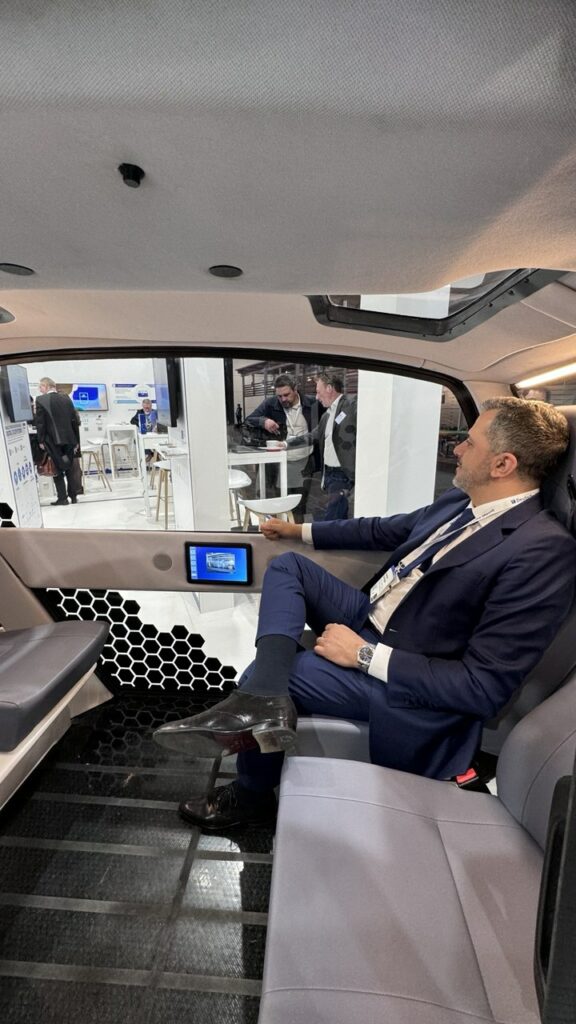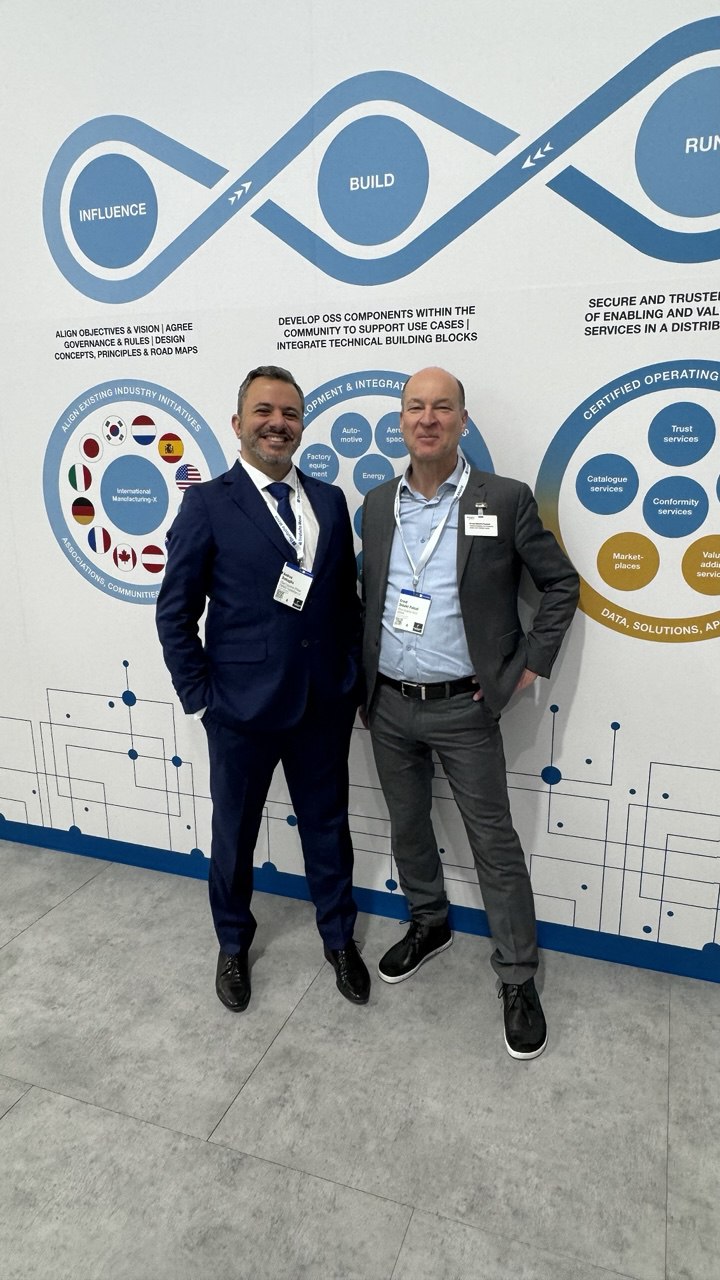Attending Hannover Messe 2024 was an extraordinary experience, providing an unmatched platform to explore cutting-edge advancements in industry and technology. This year’s event, known as the world’s leading trade fair for industrial technology, showcased transformative innovations that align closely with pressing global challenges like climate change, sustainability, and economic resilience.
A highlight of my participation was the convergence of vision and intent shared with Germany’s Federal Ministry for Economic Affairs and Climate Action (BMWK). The event underscored the significant strides made by projects like Battery Pass and Nemo.bil, which are emblematic of the BMWK’s focus on combining technological innovation with climate-conscious strategies.
Commonality of Vision: Collaboration for a Sustainable Economy
The BMWK has long championed policies that balance economic growth with environmental stewardship. At Hannover Messe, it was clear that this ethos resonates deeply across industries, as companies and governments collectively aim to advance sustainability, decarbonization, and digital transformation.
The BMWK’s goals—accelerating the green energy transition, fostering innovation in renewable technologies, and enabling resource-efficient supply chains—reflect the same aspirations driving my own professional pursuits. The conference highlighted several themes that align our visions:
- Sustainability through Technology: Leveraging digital solutions, such as blockchain and IoT, to improve resource efficiency and transparency.
- Energy Transition: Scaling renewable energy infrastructure and creating robust ecosystems for battery technology.
- Collaboration as a Catalyst: Bringing together policymakers, industry leaders, and researchers to accelerate progress on climate goals.
This shared intent provides fertile ground for impactful collaboration, especially in projects like Battery Pass and Nemo.bil.
Major Milestones: Achievements of Battery Pass and Nemo.bil
Battery Pass: Building Transparent and Sustainable Battery Ecosystems

The Battery Pass project, a flagship initiative, stood out as a key achievement in advancing sustainable battery ecosystems. With the rapid rise of electric vehicles (EVs) and energy storage systems, ensuring sustainability and transparency in battery production and lifecycle management has become a critical focus.
- What is Battery Pass? Battery Pass is an ambitious initiative aimed at creating a digital product passport for batteries, providing end-to-end traceability of materials and processes. This project aligns with upcoming EU Battery Regulations, which mandate transparency in battery composition, carbon footprints, and recycling processes.
- Key Milestones Celebrated at Hannover Messe
- Lifecycle Transparency: Achieved significant progress in enabling data collection across the battery lifecycle, from raw material sourcing to end-of-life recycling.
- Blockchain Integration: Leveraged decentralized technologies to ensure tamper-proof traceability and compliance with regulatory standards.
- Collaboration Ecosystem: United stakeholders across the supply chain, including battery manufacturers, automakers, and recyclers, to standardize data exchange protocols.
These milestones position Battery Pass as a game-changer in ensuring batteries not only meet the demands of a clean energy transition but do so responsibly and transparently.
Nemo.bil: Driving the Future of Smart Mobility

Another standout project celebrated at Hannover Messe was Nemo.bil, an initiative focused on advancing smart and sustainable mobility solutions. As urbanization accelerates, the need for innovative approaches to urban transportation becomes paramount.
- What is Nemo.bil? Nemo.bil aims to create integrated mobility platforms that connect different modes of transport, from public transit to car-sharing and micromobility solutions. By leveraging digital tools, the project seeks to optimize urban mobility while reducing environmental impacts.
- Key Achievements Highlighted
- Data-Driven Urban Mobility: Successfully piloted platforms that use real-time data to optimize routes, reduce congestion, and lower emissions.
- Public-Private Collaboration: Established strong partnerships with municipalities and private companies to co-develop scalable solutions.
- Sustainability Impact: Demonstrated measurable reductions in urban carbon footprints through more efficient mobility systems.
Nemo.bil exemplifies how technology can transform urban environments into hubs of sustainability and efficiency, contributing to broader climate and economic goals.
Looking Forward: Scaling Successes through Collaboration
Hannover Messe 2024 reinforced the importance of scaling these achievements through collaboration. Projects like Battery Pass and Nemo.bil are not just technological milestones but blueprints for cross-sector and international cooperation.
Alignment with BMWK Goals
The BMWK’s commitment to promoting sustainable innovation and climate-conscious economic growth creates an enabling environment for these projects to flourish. The ministry’s support for initiatives like Battery Pass reflects its forward-thinking approach to preparing Germany—and Europe—for the challenges of a decarbonized economy.
Scaling Beyond Germany
While Battery Pass and Nemo.bil have made remarkable progress in Germany, their frameworks hold immense potential for global adoption. Sharing best practices, aligning international regulations, and fostering partnerships beyond borders are critical next steps.
Conclusion
Hannover Messe 2024 was not just a showcase of technological advancements but a testament to the power of shared vision. Projects like Battery Pass and Nemo.bil embody the alignment between innovative industry leaders and government agencies like the BMWK, proving that meaningful progress happens when technology, policy, and intent converge.
As I reflect on the conference, I am energized by the possibilities ahead. Whether advancing digital product passports for batteries or transforming urban mobility, the milestones celebrated at Hannover Messe provide a clear roadmap for building a sustainable and resilient future. By scaling these successes and fostering collaboration, we can ensure that technology serves as a driving force for both economic growth and environmental stewardship.
